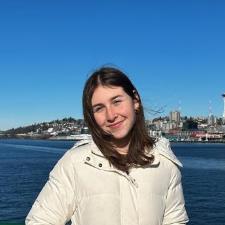

Hello! My name is Tais, and I am a pre-medical student at the University of Washington studying public health and chemistry. Before college, I attended a competitive private high school, and I struggled most in the same subjects that I dedicate most of my time to studying today- chemistry, and a lot of math-based science.
While in high school, I spent a year as a math tutor for younger students in Algebra 1, 2, and Precalculus, and helped them not only improve their overall grades in...
Loading...

knowledgeable and very well prepared
Tais is an exceptional Algebra 1 tutor whose depth of knowledge is immediately evident. She came to our first session thoroughly prepared, even though it was a last minute request. She had clear explanations, well-structured examples, and she anticipated exactly where my daughter may struggle. However, what truly set Tais apart was her patience—she took the time to ensure her explanations were fully understood, never rushing. Her engaging, encouraging personality turned challenging material into something approachable and even enjoyable. I will be booking more Algebra 1 tutoring sessions with Tais for my daughter.
Tatiana, 1 lesson with Tais
Well Prepared and Friendly
Tais helped my daughter with her AP Calculus, and she has been absolutely amazing. She came well-prepared, even requesting my daughter’s homework in advance, which made the lesson run smoothly. Tais was friendly, approachable, and easy to work with. My daughter found her support extremely helpful. I highly recommend Tais!
Misti, 3 lessons with Tais